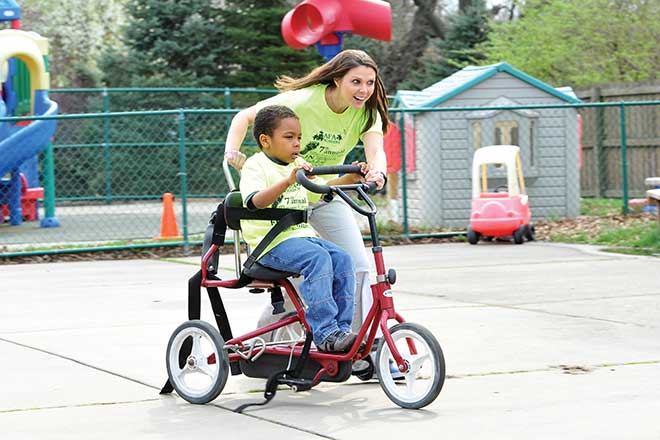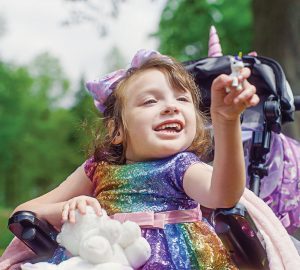The numbers continue to climb. In 2009, the Centers for Disease Control and Prevention estimated that 1 in 110 American children had been identified with autism spectrum disorder (ASD). Now, those figures have jumped to 1 in 68. ASD has no single known cause, but genetics and environment both may play a role, says Sheila Charlton, vice president of financial assistance and grants at Action for Autism (AFA). “It’s mind-boggling,” she says. “What is going on?”
 AFA was founded in 2008 by St. Louisans Brad and Stephanie Buechler, who had two grandchildren with ASD. The nonprofit now states that 1 in 45 children born today will be diagnosed with autism. As a result, AFA continues to grow: In 2010, it affiliated with Howard Park Center in Ellisville (a school for children with developmental delays) to expand services to very young and elementary age children, and in 2011, it officially became the AFA Academy, now serving children age 18 months to 21 years.
AFA was founded in 2008 by St. Louisans Brad and Stephanie Buechler, who had two grandchildren with ASD. The nonprofit now states that 1 in 45 children born today will be diagnosed with autism. As a result, AFA continues to grow: In 2010, it affiliated with Howard Park Center in Ellisville (a school for children with developmental delays) to expand services to very young and elementary age children, and in 2011, it officially became the AFA Academy, now serving children age 18 months to 21 years.
Charlton says the earlier treatment begins, the more effective it is likely to be. Even the youngest children receive around 28 hours per week of individualized behavioral therapies based on an Applied Behavior Analysis (ABA) performed by board-certified analysts. The therapies are designed to address common problems of social interaction, verbal and non-verbal communication, and restricted and repetitive behavior. Charlton says children with autism often have sensory issues as well—aversions to foods and smells, and ‘the feel of things.’ “But by working very slowly and desensitizing certain facets of life, we are able to help the child shift their focus elsewhere,” she says.
Classes (with about six children to four ‘implementers’) are based on ability rather than age and incorporate traditional teaching. The academy also has 10 in-house speech, occupational and physical therapists. “It’s a holistic approach,” Charlton says, adding that AFA Academy works with families on long-range plans and keeps in touch to monitor progress. She notes that depending on the condition’s severity and the success of treatment, it is possible for a person to assimilate completely into the world, even though certain symptoms may persist. That assimilation itself can be a lasting challenge. “If a child doesn’t appear to have autism, but then has an outburst, they come under public scrutiny,” Charlton explains.
In 2010, the Missouri state legislature passed a bill that requires insurance companies to cover autism treatment. AFA also offers scholarships to families, made possible by donations and fundraisers. On May 7, it hosts its ‘Run for the Roses’ spring gala at Rose of the Hill. The event has a Kentucky Derby theme (it takes place on Derby Day), and features dinner, raffles, and silent and live auctions. Charlton says a member of the first family AFA ever served also will speak. “Wear your bow ties and big hats,” she says. Another big annual event, the AFA Academy Golf Tournament, takes place at The Legends Sept. 19.
Action for Autism provides therapies, resources and support to individuals and families affected by autism. Its ‘Run for the Roses’ spring gala takes place May 7 at Rose of the Hill. For more information and tickets, call 636.227.2330, or visit afastl.org. Pictured on the cover: Children play at the AFA Academy playground.
Cover design by Jon Fogel | Photos by Bill Barrett
Pictured above: Isaiah receives a helping hand from Eryn, a board-certified behavior analyst.








